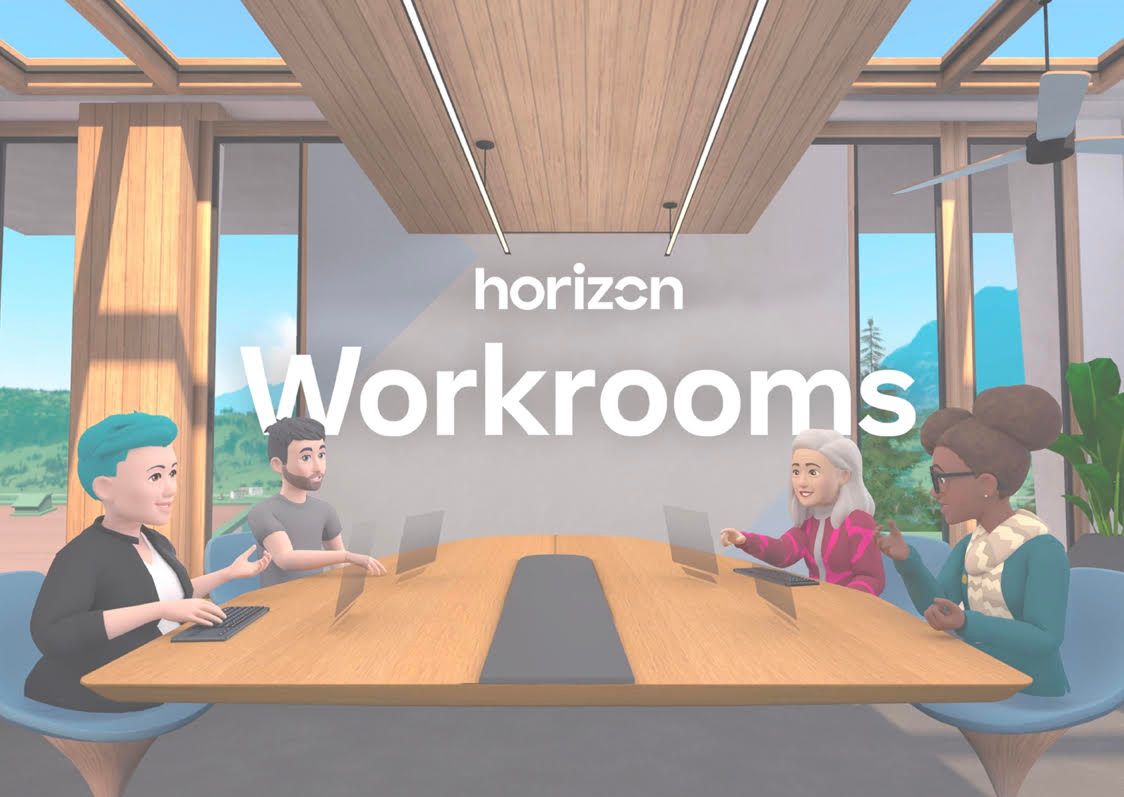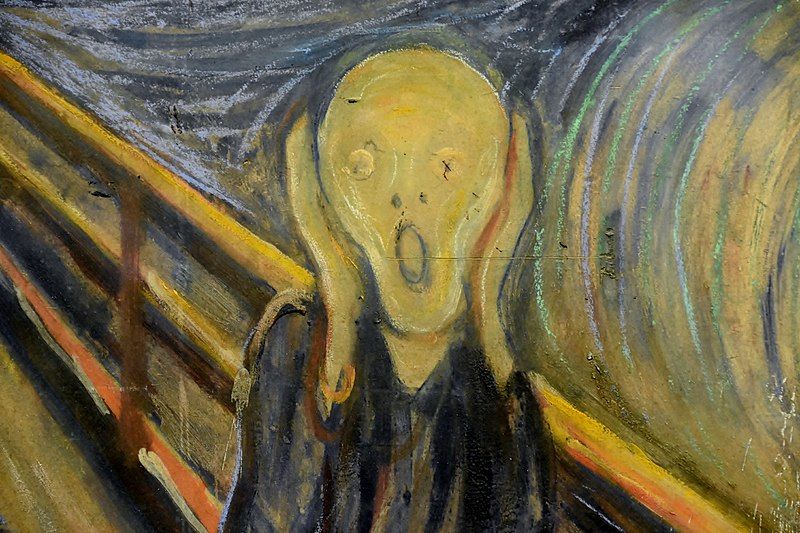What is the Metaverse? How will the Metaverse change work and society, or there's the Metaverse's effect on play fun even humanity?
What is the Metaverse? It depends. The word was first used in 1992 by Neal Stephenson in his book Snow Crash, but that's the word. Origin of the word and origin of the concept is not the same thing. Virtual reality was defined by Jaron Lanier, and the first public airing of the name occurred in an interview with Lanier, published in 1988. But then Gene Roddenberry, the creator of Star Trek, first introduced a virtual reality type concept in a Star Trek animated series broadcast in the early 1970s. The Holodeck — in which characters interact in a totally immersive environment—first appeared in an episode of Star Trek the Next Generation called The Big Goodbye in 1988, the year Lanier's interview was published.
We had to wait until 1999 before we had our first hit movie set in a true virtual reality — the Matrix.
However, the Metaverse and virtual reality are not one and the same — to be more precise, virtual reality is part of the Metaverse, but there is more to the Metaverse than virtual reality.
This is when we get into the issue of definition.
According to April Arrglington, co-founder of ARchimeral Inc and producer of the XR Atlanta's XR Art Showcase, the Metaverse "refers to the concept of a future iteration of the internet, made up of the integration of physical spaces, augmented reality and virtual worlds linked into a perceived universe."
She says that the Metaverse must offer:
- Persistence & synchronicity: to better establish a sense of presence in a realistic environment. Right now, however, we don't have the ability to have the same avatar across all platforms.
- Ability to share content, goods and services across platforms: through a seamless virtual economy. Right now, however, the NFT market/ Blockchain economy is still in its infancy.
- Interoperability: moving through interfaces and platforms seamlessly, linking and integrating systems and software with ease. This is the hardest part of the puzzle that is still being built in sections by different companies.
The new internet
The key phrase in the above definition is "future iteration of the internet."
The World Wide Web is evolving. We used to hear about Web 2.0, but now terms like Web 3.0 and 4.0 get bandied around.
Web 3.0 is mainly about decentralisation, the connection of decentralised data — so blockchain and distributed ledger technology are an important part of Web 3.0
Hrish Lotlikar, Co-Founder and CEO of SuperWorld says that Web 3.0 is also about user-owned content, bringing us back to the Metaverse because that is how he sees it developing— a new virtual universe defined by its users. Blockchain, distributed ledger and non-fungible tokens (NFTs) will need to be integrated at the foundational levels of the Metaverse.
As for Web 4.0, this is where digital alter-egos come in.
At one level, the Metaverse is anything we do virtually — if we are in a zoom call or an online conference, we are in the Metaverse; some say that even if we are engrossed in an activity using our smartphone, we are in the Metaverse. But frankly, these are disappointing definitions; the Metaverse becomes another word for activities we already do.
Maybe it is a combination of web 3.0 and web 4.0, but I think it is more than that. Evolution throws up gradual changes, but there comes the point in the evolution process when the changes it has created are so different from the original that a new species has emerged.
You could say the Metaverse is Web 3.0 and will be Web 4.0 combined, but I think it is more like internet 2.0. The architecture that makes the Metaverse possible is an evolved version of the old architecture that made the internet possible, but I think the DNA has changed, via the process of incremental steps affecting a myriad of different constituent parts, such that the Metaverse is as different from the internet as an ape we call Homo Sapiens sapiens is as different from an ape called chimpanzees.
And that makes the Metaverse a huge deal. Right now, it is like the Wild West, just as the internet of the 1990s was like the Wild West and the myriad of dotcoms of that era were like gunslingers. It was a violent time, but the Wild West eventually morphed.
Convergence
What makes it so hard to put your finger on a precise definition of the Metaverse is that it is a child of convergence. Haptics, screen displays, AI, distributed ledger technology and blockchain and technologies such as 5G and in time 6G create the Metaverse. So do its users; without them and the content they produce, the Metaverse will be no more real than a John Wayne western (showing my age here.)

Many of these technologies advance exponentially — they converge now and will converge further; their coupling is not a one-off; it is multiple endosymbioses. That is how evolution works, and the Metaverse is the digital consequence.
Future of work
If this connected world takes off (we think it will - given the big bets the biggest names in tech are making) the Metaverse nullifies the debate over the future of work; will we see remote working, hybrid working or a return to the office? The answer is none; that very question is so very summer 2021. So instead, we have the Metaverse.
"The future of work has already begun," said Kunal Patel, Co-Founder & CTO, BrandXR.
He confined: "The way it works today is that we are limited by physical space; we had a single LCD, a physical keyboard, and a mouse. And now we get to this new place; we started with Zoom, but now we are moving into the Metaverse, where our virtual workspace is better than our real workspace. You don't need to spend money on five or six different monitors; you can have it with a snap of the finger.
"Our physical world is limited, but working in the Metaverse will be more customised to us…remote work makes us better employees. We have less clutter, more focus, and when we decide we need to be in the physical world, say at home, we can use augmented reality.
"Our workspaces will be better than the real world. It will be both collaboration and play. That water cooler talk is going to be mixed in with the whiteboards we use to communicate something."

Globalisation will speed up again in the Metaverse
John Lennon sang, "Imagine there's no country."
This is an idea that might become especially relevant in the Metaverse. SuperWorld is a digital representation of the real world, and Hrish Lotlikar says it "will bring the world together." He says that the technologies we are using "will make communication more seamless. We won't need to travel; we can even communicate with language translation tools."
"Governments will have to cater for the citizen of the Metaverse," an idea which Hrish says the Barbados government has grasped, hence its recent announcement to set up an embassy in the Metaverse.
It's an idea Kunal Patel also signs up to. "Barbados is a beautiful place," he says, "but not everyone can get there. So it might be easier to visualise it in the virtual world."
Over the last few years, there has been much talk about the reversal of globalisation, a return to a world where national borders are emphasised.
We have been here before, of course. The first age of globalisation ended with World War 1. After that war, the world drew in on itself; protectionism came to the fore and eventually World War 2 resulted.
That is why many fear the reversal of globalisation, but how can this happen if we conduct more communication and transactions in the Metaverse, aided by real-time language translation?

Age of plenty
There are no physical barriers to virtual possessions.
"If I am in the Metaverse eight hours a day, what does it matter if you have a Rolex or BMW," asks Kunal?
He sees a day when your virtual life has more value than your real life.
So maybe we can return to John Lennon again —"imagine there's no possessions."
So maybe the Metaverse can create a virtual utopia.
Dystopian
But there is another point, a rather important point. Us humans, or at least our particular version of humans, Homo Sapiens sapiens, as opposed to say Homo Sapiens neanderthals, are around 200,000 years old. Evolution designed a species for hunting and gathering; it made us a social species, designed to live optimally in communities of 150 (the so-called Dunbar number); we communicate using speech and body language.
Evolution wasn't thinking (metaphorically speaking) about the Metaverse when it created us. (It wasn't thinking about agriculture, living in cities, or sitting behind a desk, for that matter.) We know that this can cause problems.
For example, in the natural world, sugar is something we come across only very occasionally. When our hunter-gatherer ancestors discovered sugar, they would indulge. Now sugar is commonly available, but evolution didn't hardwire a sugar off-switch. This, in turn, leads to obesity, diabetes, etcetera.
Unfortunately most people, okay all people wishing to retain their sanity, don't think thousands of years ahead — the most we might do is think of our grandchildren.
Maybe after a few thousand years, evolution may design a version of our species, say Home Sapiens meta, that is perfectly adapted to make appropriate and efficient use of the Metaverse.
I don't know about you; to me, that provides little comfort.
How might echo chambers develop in the Metaverse; what about group psychology, groupthink, group polarisation, and madness of crowds develop in the Metaverse?

April Arrglington, Hrish Lotlikar and Kunal Patel all agreed that a dystopian version of the Metaverse is a danger, yet they remain optimistic
"There are a lot more possibilities for good," said Kunal, "but if we are not careful, it could create a tough environment with dark alleys."

Regulation
So maybe then we need to look to governments for regulation.
The problem with this idea is that the Metaverse is developing so fast, inevitably thinking within governments will lag behind.
"Companies in the Metaverse should work alongside stakeholders, and a lot of what is required doesn't naturally occur, "said Hrish.
"We have to educate government," he added.
The future of the Metaverse
And what will the Metaverse be like ten, twenty or thirty years from now?
Hrish imagines that as technology advances and automation software takes over the mundane tasks, the Metaverse will free us. "We will be able to pursue our passions, both physically and virtually," he says.
As for jobs, "I think a lot of people will become games designers, and a lot of people will become creators," predicted Kanel.
Not like the Jetsons
Peter Thiel once said, "we were promised flying cars; we ended up with 140 characters."
Setting aside that flying cars or passenger drones or VTOLs are coming, maybe the Metaverse is a future that very few if any science fiction writers before the late 1980s envisioned.
In the Metaverse, it won't be like the Jetsons. Maybe it won't be like the Matrix either. Ready Player One might be closer to what we get; let's hope it won't be like an episode of Black Mirror.
Contributions from April Arrglington, Co-Founder, Experience Designer & Immersive Producer, ARchimeral, Hrish Lotlikar, Co-Founder and CEO, SuperWorld and Kunal Patel, Co-Founder & CTO, BrandXR, all spoke at an online event hosted by the author and organised by the Zicklin School of Business.






Related News
ESG isn’t about ethics; it’s about profit — is that right?
Mar 30, 2022
Will remote working and calls for four day week lead to people taking in 2 jobs?
Mar 28, 2022
How has the pandemic changed businesses’ telecommunications requirements, and what are the potential challenges?
Mar 17, 2022